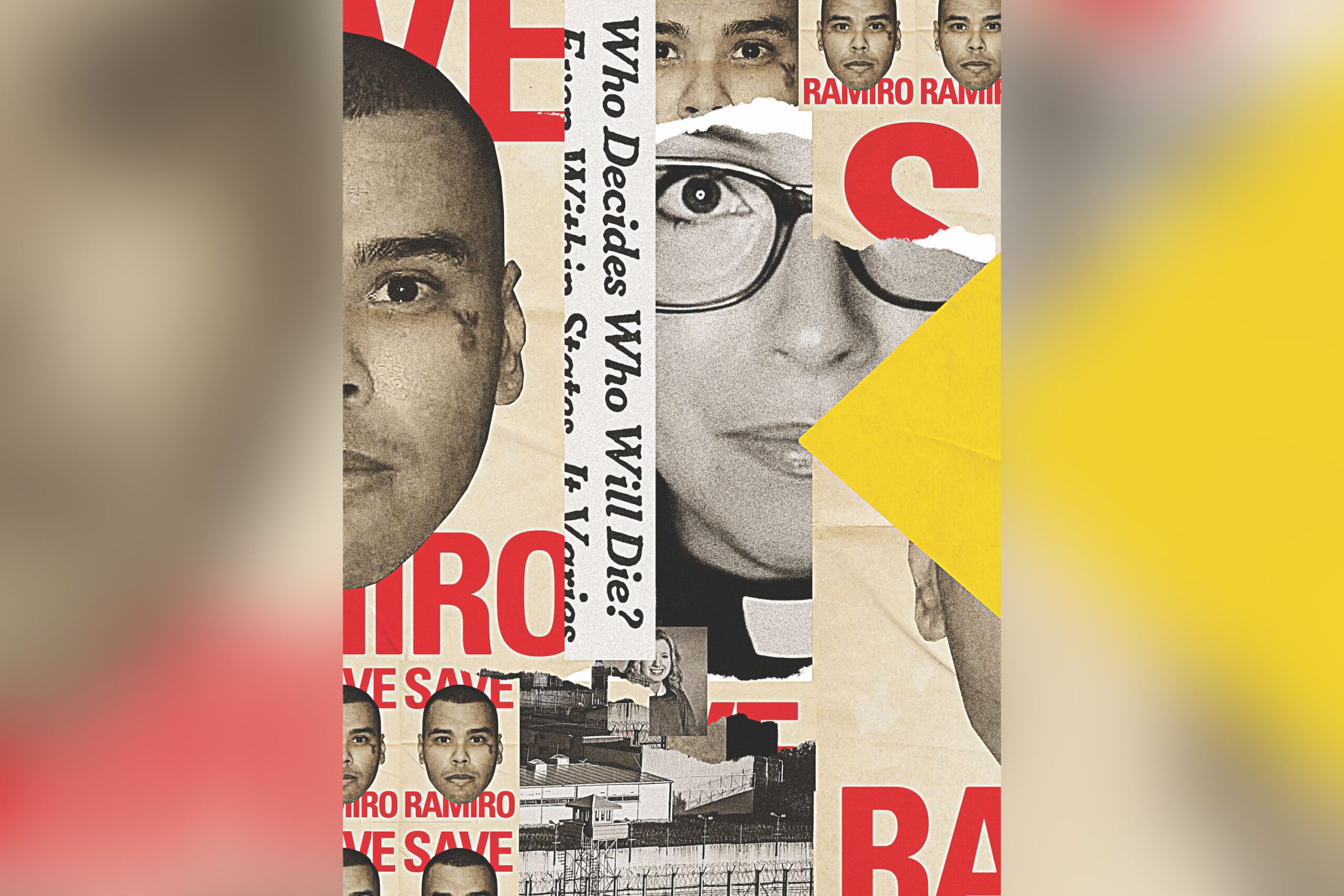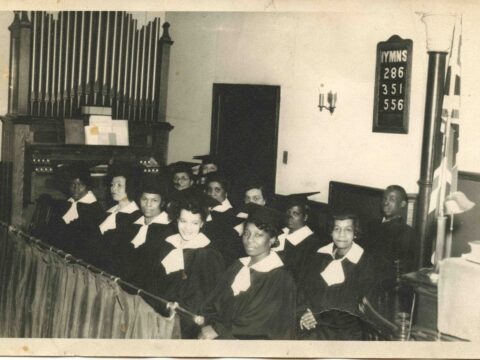Jesus was executed by the state. Scripture tells a story of how Emmanuel — God with us in the flesh — came and lived among his people. He ate with his friends. He told stories to those who would listen. He loved with the fullness that it is to be God incarnate.
This love wasn’t always gentle. It was a love that included justice for the poor, the forgotten and the neglected. It was a love of action, with its movement always toward the reconciliation of God’s people.
You may unsubscribe from any of our newsletters at any time.
However, as we read in The United Church of Canada’s A Song of Faith:
Because his witness to love was threatening,
those exercising power sought to silence Jesus.
He suffered abandonment and betrayal,
state-sanctioned torture and execution. He was crucified.
The last executions in Canada occurred in 1962, and capital punishment was removed from the civilian criminal code in 1976. It can therefore be tempting for Canadians to believe that ongoing use of the death penalty in other jurisdictions has nothing to do with us. However, a recent survey shows that more than half of Canadians support reinstating the death penalty. This statistic makes me continually grateful for the work of Rev. James V. Scott, a United Church minister who, in the mid-1980s, co-ordinated a national campaign to oppose the reinstatement of the death penalty, culminating in the bill’s defeat in 1987. My fear is that some future government will decide to hold another parliamentary vote on whether or not we should reinstate lethal processes to punish our citizens.
However, even more than the fear of capital punishment returning to this country, I believe it is important for Christians to discern our particular relationship to the death penalty because of its place within our faith tradition.
Capital punishment is an important piece of the Christ story. And yet, so often it is Christians who are its most passionate supporters. This enthusiasm is often displayed with painfully simplistic proof-texting, quoting phrases such as “an eye for an eye” (Leviticus 24) or Paul’s instruction for early Christian communities to submit to government authority (Romans 13). In 2019, a Wyoming state senator even claimed that if the death penalty didn’t exist, Jesus would never have been able to “save” us, which is reason enough to keep capital punishment around.
A theology suggesting the world and everybody in it was so bad that the incarnate God had to die doesn’t resonate with me. My understanding of the crucifixion is much more in line with the Song of Faith statement: Jesus’ witness to love was threatening. He was publicly executed under Roman authority in the same way that so many potential rebels and revolutionaries had been tortured before him. Except, Jesus’ challenge to those exercising power wasn’t because he wanted that power for himself. It was his unmasking of injustice, perpetuated by those in power, that led to his death sentence. This is what happens when God’s love threatens Power: Power tries to kill God. Citing scripture from his Jewish faith, Jesus insisted on a love of action that specifically named the poor, the hungry and the merciful as blessed. He demanded a love that left nobody behind and that favoured those the world did not.
We encounter Christ everywhere corporate and systemic sin is confronted. It is in this way that we bear witness to the crucifixion over and over again. It is also in this way that the hope of resurrection always remains present. Exposing evil is costly, sometimes even deadly. And yet, in the outrage and in demands for change, we are also reminded that there is always something greater. Something more.
I’m not for one moment comparing the devastating actions of violent offenders to Jesus’ life-giving ministry. Rather, like Jesus, these deaths at the hands of civil authorities expose society’s failings. In countries such as the United States, executions shine a spotlight not only on how a nation responds to the failures of its individual citizens, but also on the failures of the collective.
In Texas, where death-row inmate and convicted murderer Ramiro Gonzales grew up, nearly a fifth of all children live below the poverty line. Minimum wage is $7.25 an hour and has not changed since 2008. More than a million Hispanic kids grow up in households where no adult has consistent, year-round work. Almost 20 percent of adults lack basic literacy skills. When the natural consequences of
ongoing systemic failures result in people engaging in criminal behaviours, these people are “othered” and dehumanized. We call them evil. We label them monsters.
How this othering happens with violent offenders is perhaps an extreme example, but it also occurs to those convicted of non-violent offences, such as simple possession of illicit drugs. We blame individuals for the failures of society, especially the failures of those who hold power and influence. However, those who commit violence rarely act out their brokenness in a vacuum. There are many cracks one needs to fall through first.
More on Broadview:
- Ramiro Gonzales faces execution. His friendship with a Canadian minister has changed them both.
- Canada came through for me. Not so for Sacha Bond.
- Bible’s tolerance for violence plants the seeds of police brutality
Gonzales fell through every crack imaginable. Those cracks combined until they became a crevasse so deep, it was impossible to climb out alone. While I would never discount Gonzales’s personal responsibility for Bridget Townsend’s death, I deeply believe that Townsend would still be alive today had this crevasse been filled with love — an incarnate love that American philosopher Cornel West describes when he reminds us to “never forget that justice is what love looks like in public.”
This kind of love can cost a lot. If those who have committed heinous crimes are nothing less than human beings, if we can still recognize them as God’s beloveds, there is a cost to that. To be honest, I find that cost terrifying. If there isn’t something inherently evil or inhuman about people who have perpetrated terrible violence, then what else has contributed to these people causing so much harm, and where is my complicity in that? Do I have the capacity to also commit that kind of harm? If the social safety net has failed to prevent the circumstances that led to a chain of choices culminating with an innocent woman’s murder, does the whole of society not hold some responsibility for her death?
This is, of course, a bit simplistic. Many people have suffered trauma and not gone on to perpetuate cycles of violence. I do not dismiss individual agency and responsibility. However, violence as a solely personal failure has been the primary narrative for too long. If society is complicit in creating the circumstances where violence flourishes, then it is no wonder our societal structure has been designed to resist that culpability and distance us from those we name as guilty, with scapegoating being the inevitable result.
The same forces that led to Jesus’ death continue to be at work in the ways our society inflicts punishment. The ultimate and most tragic manifestation of this is the ongoing endorsement of a penalty, used against the God we worship, and disproportionately levied upon the very people Jesus named as blessed.
It is my hope that people of faith will continue to engage in this conversation, wrestling with our relationship to capital punishment, the crucifixion and the ways society scapegoats those who hold up a cracked mirror to our failings. Christ calls us to participate in a love that breaks down the barriers separating us, and that inevitably leads to reconciliation with each other and the God who is Wholly Love, and for whom death is never the last word.
***
Rev. Bri-anne Swan is minister of digital community, growth and public witness at Jubilee United Church in Toronto.
This story first appeared in Broadview’s January/February 2023 issue with the title “Capital punishment and the crucifixion.”














I am one who, initially, disagrees with capital punishment and I disagree with the death penalty because too many innocent people have been killed by governments that rely on a faulty legal system. Legal systems operate with the manipulation of words and laws that are designed to give us justice but often do not do that. I disagreed with capital punishment as well because I felt the desire to have a murderer serve the rest of his/her life in prison where they can remember why they are there. However, when we speak of love, I get a feeling that Jesus didn’t mean that we are to love those who premeditatively take an innocent person’s life. As well I thought about the families of those innocents who were perhaps raped, tortured, humiliated, alone with no chance of escape and I wonder how I would feel if it were my daughter, wife or son who was brutally murdered. It all depends on one’s viewpoint. My compassion is with the family of the victim. Lawyers, social workers, ministers will depict a murderer as having a difficult life and that’s the reason for his/her crime. Well, most of us have difficult lives and we don’t intentionally kill people. I know there are varying degrees of circumstance such as self defense but if a person thinks in his or her mind of intentionally killing innocent folk and there is any chance that he/she would be out of prison to ever do it again, I would lean in favour of the death penalty. Many would be aghast at hearing that from a minister but that’s my feeling.
The writer’s Biblical construct is faulty.
1) Jesus came to fulfill the Law that we may live under God’s grace, and not under the law.
2) Man has no capability on his own to be good, never.
Jerimiah 17:9 “The heart is more deceitful than all else
And is desperately sick; Who can understand it?”
Mark 7:21-22 “For from within, out of the heart of men, proceed the evil thoughts, fornications, thefts, murders, adulteries, 22 deeds of coveting and wickedness, as well as deceit, sensuality, envy, slander, pride and foolishness.” (Jesus words)
Romans 3:10-18 “as it is written, “There is none righteous, not even one; There is none who understands, there is none who seeks for God; All have turned aside, together they have become useless;
There is none who does good, There is not even one.” “Their throat is an open grave, With their tongues they keep deceiving,”
“The poison of asps is under their lips”; “Whose mouth is full of cursing and bitterness”; “Their feet are swift to shed blood,
Destruction and misery are in their paths, And the path of peace they have not known.” “There is no fear of God before their eyes.”” (That’s a very bleak description of how God sees us in light of His Righteousness)
Romans 3:23 (Everyone’s favourite) “for all have sinned and fall short of the glory of God,”
3) Christ (being God and man) needed to die to fulfill the Old Covenant in order to create the New Covenant. (see 1)
4) Christ’s (and God’s) Love is not a love we tend to think of. God’s love is based on 1 Corinthians 13. We can strive to fulfill that love, but we are incapable of it. 1 Corinthians 13 is agape love described. (I challenge anyone who claims they love in the manner described)
5) Society is not the reason for someone to go against its standard, if so, we all have an excuse to do whatever we pleased. Everyone has a conscience and a moral standard.
God values life and we have no right to take God’s gift away from others. God holds us accountable for those who do take life from others. (Including abortion and MAID)
The author mentions Leviticus so I’ll follow suit, death for those who murdered someone have very strict rules. (Number of witnesses, reliability of witnesses, intention of perpetrator, even the value of the body once the judgement was passed) Unfortunately those rules and regulations are not followed, thus the cry to abolish the death penalty.
Homicides have almost doubled since 1969, but there are other factors that are related, such as lack of respect of authority and costs of incarceration.
Finally, Christ died sinless. You are comparing apples to oranges.
Christ died for the remission of sins, and ultimately to defeat death and prove He was indeed God. He did not die because He murdered someone.